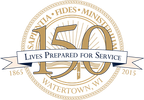The Ultimate Guide to Creating a Successful Information Blog
Understanding the Power of Information Blogs
An information blog serves as a hub for sharing valuable insights, tutorials, and expertise on niche topics. Unlike entertainment-focused platforms, these blogs prioritize educational content that helps readers solve problems or enhance their knowledge. Whether you’re explaining complex theories or simplifying everyday tasks, your blog can become a go-to source for digital resources. By focusing on quality over quantity, you establish credibility and attract audiences seeking reliable online content.
Key Elements of a High-Quality Information Blog
A successful information blog requires more than just well-written posts. It needs a clear structure, consistent updates, and a user-friendly design. Prioritize readability by using subheadings, bullet points, and visuals. Ensure your content aligns with your audience’s needs while integrating SEO strategies to boost visibility. Remember, every piece should reinforce your blog’s mission as a trusted repository for digital resources.
How to Choose the Right Niche for Your Blog
Selecting the right niche is crucial for long-term success. Focus on topics you’re passionate about and have expertise in, ensuring your content remains authentic. Research demand using tools like Google Trends or keyword analyzers to identify gaps in the market. Avoid overly saturated niches unless you offer a unique angle. For instance, if you’re targeting tech enthusiasts, highlight how your blog provides specialized digital resources that differentiate it from competitors. https://luckytiger2.com/
Essential Tools for Blogging Success
- Content management systems like WordPress simplify publishing and customization.
- SEO plugins such as Yoast help optimize posts with targeted keywords.
- Analytics tools track traffic sources and reader behavior to refine strategies.
Content Creation Strategies for Engagement
Create diverse formats—articles, videos, infographics—to cater to different learning styles. Use storytelling to make technical subjects relatable. Regularly update older posts to maintain relevance. Engage readers by asking questions or encouraging comments. Always tie back to your core goal: delivering actionable online content that resonates with your audience.
Optimizing Your Blog for Search Engines
Implement SEO strategies like keyword research, meta descriptions, and internal linking. Use headers effectively to structure content and improve readability. Optimize images with descriptive file names and alt text. Ensure your blog loads quickly, as speed impacts search rankings. Consistently applying these tactics enhances discoverability and drives organic traffic.
Tips for Growing Your Audience Organically
Leverage social media to share snippets of your posts and engage with followers. Collaborate with influencers or other bloggers to expand reach. Offer free downloadable guides or templates as incentives for email signups. Encourage user-generated content to build community. Stay active in forums and comment sections to position yourself as an authority in your niche.
Monetization Options for Information Bloggers
Once your blog gains traction, explore monetization methods like affiliate marketing, sponsored posts, or selling digital products. Ad networks like Google AdSense can provide passive income. However, always prioritize reader value over ads to maintain trust. Diversify revenue streams to ensure financial stability while keeping your blog’s integrity intact.
Common Mistakes to Avoid When Starting a Blog
Many new bloggers rush into posting without a plan, leading to inconsistent content. Avoid neglecting SEO fundamentals or ignoring analytics feedback. Overlooking mobile optimization can alienate a significant portion of users. Lastly, don’t sacrifice quality for speed—patience and persistence yield better long-term results.
Staying Updated with Digital Trends in Blogging
Blogging evolves rapidly with advancements in AI tools, voice search optimization, and interactive media. Subscribe to industry newsletters and attend webinars to stay informed. Experiment with emerging formats like podcasts or live Q&A sessions. Adapt your strategies to align with current trends while maintaining your blog’s unique voice.
Building a Community Around Your Information Blog
Foster interaction by creating a comment section policy that encourages respectful discussions. Launch a newsletter to keep readers informed about updates and exclusive content. Host giveaways or contests to increase engagement. A loyal community strengthens brand loyalty and turns casual visitors into advocates for your blog.
Measuring the Success of Your Blogging Efforts
Track metrics like page views, bounce rates, and conversion goals using analytics platforms. Regularly audit your content to identify top-performing posts and refine underperforming ones. Solicit reader feedback to understand their needs better. Adjust your approach based on data to ensure continuous improvement and alignment with your blogging goals.
Future-Proofing Your Information Blog
Prepare for algorithm changes by diversifying content formats and focusing on evergreen topics. Invest in backup systems to protect against data loss. Stay adaptable by learning new skills, such as video editing or podcasting. By anticipating challenges and embracing innovation, your blog remains relevant in a competitive landscape.
Final Thoughts on Blogging in the Digital Age
Creating a thriving information blog demands dedication, creativity, and strategic planning. By leveraging blogging tips and SEO strategies, you can transform your passion into a sustainable platform. Remember, consistency and authenticity are key to building a legacy of impactful online content that inspires and informs generations of readers.



